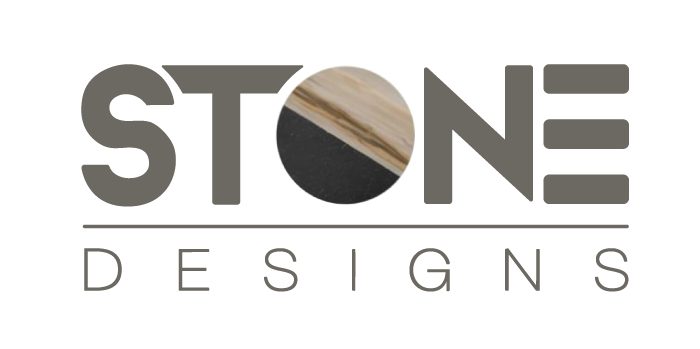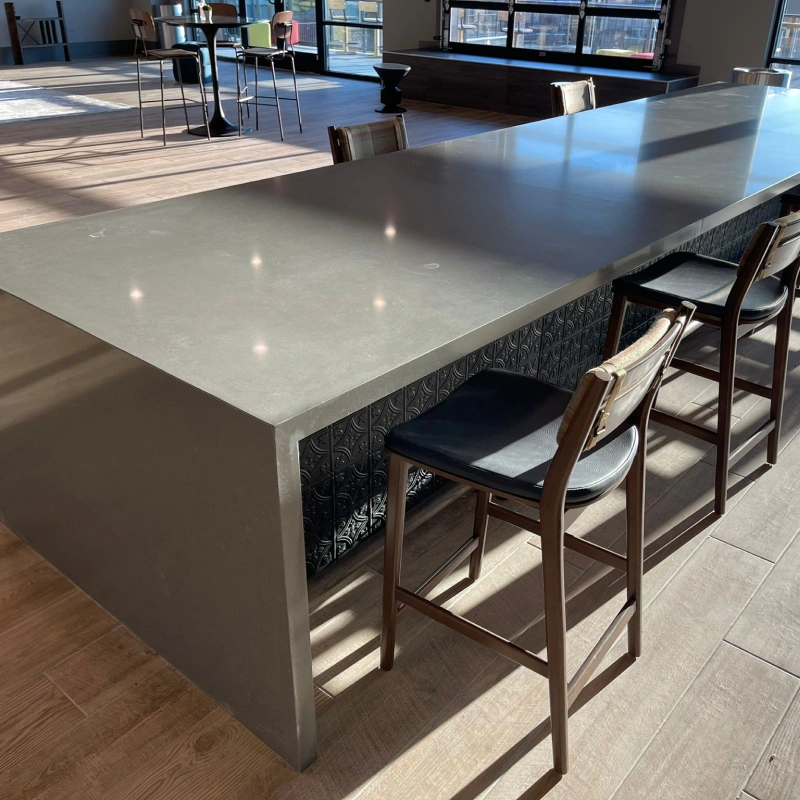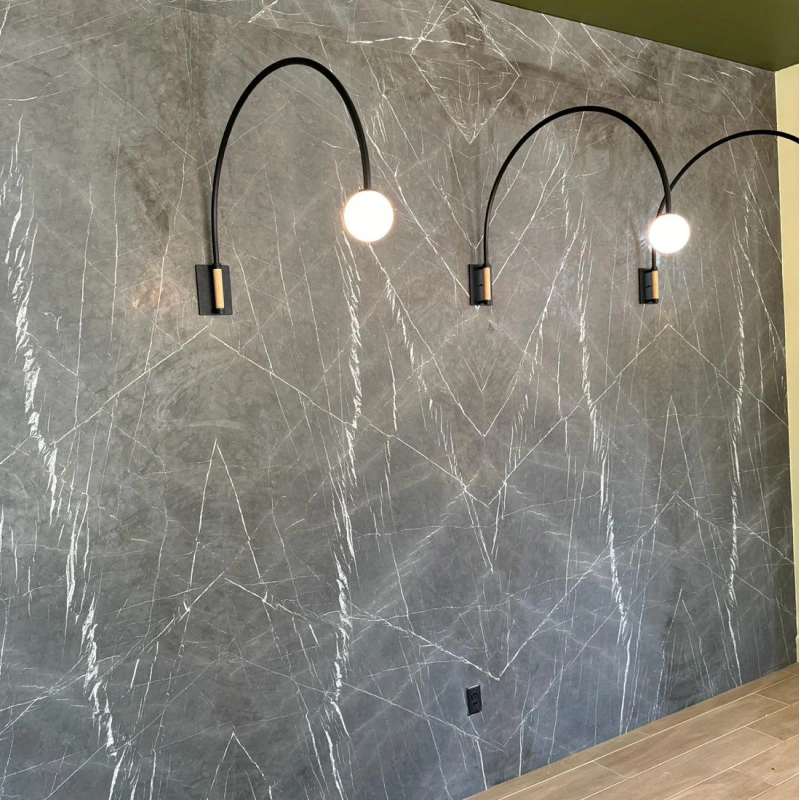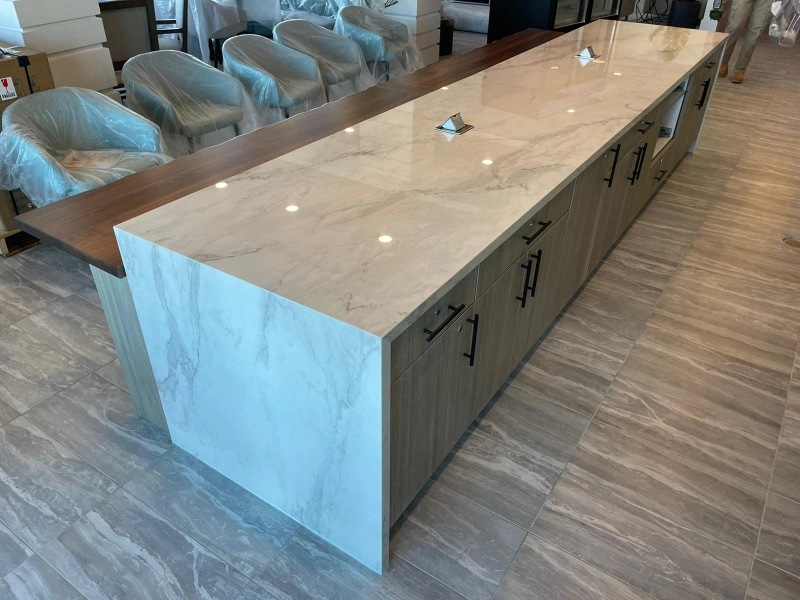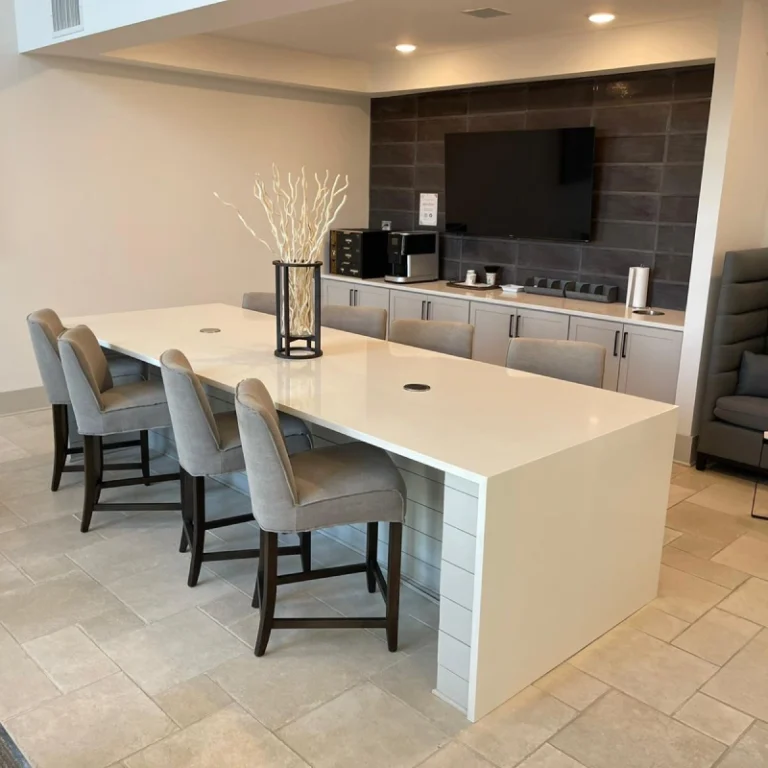Frequently Asked Questions about Countertops
Countertops are essential to home design, offering both functionality and aesthetic appeal. They’re where you start your day, cook meals, and spend time with loved ones. Below is a list of common questions and their answers to help guide you in selecting the ideal countertop for your space.
Materials and Types of Countertops
1. What are the most common countertop materials?
Countertop materials can be overwhelming, but understanding your options can make the decision easier. From natural stones like granite and marble to engineered materials such as quartz, you have many choices. Laminate, solid surface, and wood are also popular, each with its unique benefits, so consider what best suits your kitchen’s needs.
2. How do I choose the right countertop material for my kitchen?
Choosing the right material can feel like a daunting task, but our team is here to make it easier. The best material depends on your taste, needs, and budget, and we can guide you every step of the way to find a perfect fit.
3. What’s the difference between natural stone and engineered stone countertops?
Natural stone countertops like granite and marble are mined and sliced into slabs, each with unique patterns. Engineered stones, like quartz, are man-made from crushed stone and resins, offering more uniformity and color variety.
4. Can I use different types of countertops in different rooms?
Definitely! Different rooms may have varying needs when it comes to style and functionality. For example, I chose quartz for my busy kitchen, marble for my bathroom, and wood for my laundry room. Mix and match to suit each space’s personality.
Countertop Installation and Maintenance
1. What is the typical cost of countertop installation?
Installation costs can vary depending on material type and kitchen size. We’re happy to provide estimates and help you understand the costs based on your unique project.
2. How long does it take to install countertops?
Installation time can vary, typically taking anywhere from one to a few days depending on the project scope and material choice.
3. How do I clean and maintain my countertops?
Keeping countertops in top shape involves regular cleaning and, for some materials, periodic sealing. I clean my quartz countertop with warm water and a cloth and reseal granite annually. For marble and granite, always wipe up spills promptly to avoid staining.
4. Are there eco-friendly countertop options?
Yes! I personally love eco-friendly countertops like recycled glass, which is made from reused materials like glass and porcelain. Bamboo and reclaimed wood are also great sustainable choices, durable and stylish.
Granite Countertops
1. What are the benefits of granite countertops?
Granite is known for its durability and unique patterns, making it a popular choice. I’ve used it for years, and despite all the chopping and cooking, my granite still looks flawless. It’s also heat-resistant, so hot pots won’t damage it.
2. What are the drawbacks of granite countertops?
Granite is porous, meaning it can stain if liquids are left on it for too long. I accidentally spilled wine once, and while it left a mark, a quick resealing fixed it. Annual sealing is a must for granite to protect its surface.
3. How do I choose the right color and pattern for granite countertops?
When choosing granite, consider your kitchen’s color scheme. I picked a white marble-look granite with subtle veins to complement my modern kitchen’s neutral tones.
Quartz Countertops
1. What makes quartz countertops different from others?
Quartz is engineered, making it more uniform than granite or marble. It’s a great choice for homeowners looking for consistency and a range of colors. I chose it for its contemporary look and high durability.
2. Are quartz countertops resistant to stains and scratches?
Yes, quartz is highly resistant to stains and scratches. It stands up well to daily wear, and I’ve found it’s great for spills and knife marks.
3. Can I place hot pots on quartz countertops?
Quartz countertops aren’t as heat-resistant as granite, so always use trivets or heat pads to protect your surfaces.
4. Can scratches or stains be repaired on solid surface countertops?
Yes, one of the perks of solid surface countertops is that they can often be easily repaired. Just follow the manufacturer’s instructions for fixing minor issues.
Countertop Edges and Finishes
1. What are the different edge profiles for countertops?
Countertop edges can completely change the look of your kitchen. Popular options include:
- Square Edge: Clean and modern.
- Eased Edge: Softened corners for a refined look.
- Bevel Edge: A 45-degree cut that adds detail.
- Bullnose Edge: Rounded for a soft, child-friendly finish.
2. How do I choose the right finish for my countertops?
Choose a finish based on your kitchen style and maintenance preferences. I personally love matte finishes—they’re understated and don’t show smudges. Glossy finishes add luxury but require more upkeep. Leathered finishes are great for hiding imperfections while providing a unique texture.
Countertops for Bathrooms
What materials are best for bathroom countertops?
I recommend quartz and granite for bathrooms because they’re durable and available in a wide range of colors and designs. They can withstand moisture, so they’re ideal for wet areas like bathrooms.

